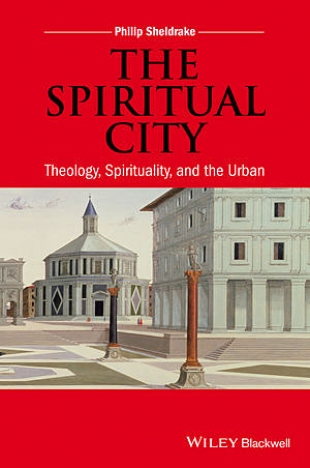"In reference to the connections between urban design, architecture and virtue, the eminent British architect, Richard Rogers, in his 1995 BBC Reith Lectures (later published as Cities for a Small Planet), highlighted seven key values that may be thought of as spiritual. The good city should be 'just' — that is, somewhere that expresses social and economic equity. Physically, design needs to make adequate and inclusive space for appropriate places for food, housing, education, and healthcare. Second, we should promote the importance of the 'beautiful city.' There should be architecture and design to 'stir the soul,' that is, nourish us both materially and aesthetically. Cities should be 'creative,' offering what he calls 'open-minded space' that people may explore and psychologically 'expand.' The good city should be 'ecological.' That is to say that it minimizes the ecological footprint, balances nature with the built environment and encourages efficient building. For a city to be humane, it should facilitate 'easy contact.' Public space needs to be readily accessible to encourage social mixing and to foster community. Equally, a good city is 'compact' and 'polycentric.' This is both an ecological principle (it protects the countryside against urban sprawl) and a 'contact' principle (it integrates local neighborhoods and maximizes community proximity). Finally, the good city is 'diverse.' That is, its design should consciously speak of difference and 'otherness' being valued.
"These values are especially evident in Rogers' promotion of 'open-minded space.' This has spiritual resonances. Such space (for example the piazza or public square) is person-centered. Its function is left open rather than predetermined by planners or politicians. It does not prioritize efficiency but human participation. Consequently, it is accessible physically, intellectually and spiritually. 'Open-minded space' evokes inclusivity, encourages diversity and enables creativity and play as opposed to control and constraint. Like Michel de Certeau and Richard Sennett, Rogers believes in the social value of ambiguity and indeterminacy, the human ability to transcend imposed, static order. Rogers grew up in Florence and writes of the purposeful Italian custom of passeggiata — casual 'wandering about in public' — that leaves room for surprise and celebrates people's social personae.
"On a similar theme, the contemporary human geographer Ash Amin also underlines that the physical and social dynamics of public space still play a major role in shaping urban virtue. However, more than Rogers, Amin emphasizes the radical multiplicity of today's cities and that the everyday virtue of what he calls 'conviviality' arises from a direct experience of multiplicity, an instinctive or reflexive routine of response to this and the consequent daily negotiations of difference."
